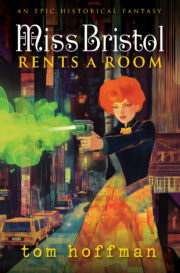PUBSLUSH Press
Posted by Victoria Strauss for Writer Beware
 I’ve been getting a number of questions lately about PUBSLUSH Press.
I’ve been getting a number of questions lately about PUBSLUSH Press.
From PUBSLUSH’s FAQ page:
What is PUBSLUSH Press?
PS Press (as we prefer to call ourselves) is a full service publishing platform that connects writers directly with their readers using social media. We operate like a traditional publishing house, except we let the reading public decide what gets published. Best of all, we give you the power to change lives. For every book purchased, we will donate a book to a child in need.
What this means, basically, is that PS functions rather like Kickstarter, Unbound, and other crowdsourced funding websites–except that instead of pledging cash, donors promise to buy books once they’re published. Writers submit 10 pages plus a summary of their manuscripts to the PS website, where the submission is displayed for 120 days. Potential supporters can read the material and, if they like it, pledge their support–from $25 to receive physical and digital copies of the book, to $500 to receive the books plus a variety of perks such as a dedication and a copy of the original manuscript (you must submit your credit card information in order to make a pledge, but according to PS’s FAQ, your card is only charged if the book is selected for publication). Once a book receives 2,000 supporters (though see below), PS will publish it, and pay $5,000 to the author (again, see below). There are no entry fees or other fees to participate in the site.
Leaving aside any reservations about the effectiveness of crowdsourcing as a way of locating quality material, and any doubts as to whether it’s possible to convince 2,000 people to contribute $25 based on 10 pages of manuscript, and the silly “the traditional system is broken so we need a new process” stuff in the About Us section of PS’s website, and concerns about PS’s apparent use of spam-style emails to publicize its service and recruit aspiring authors…leaving aside all those things, PS seems like an interesting idea. Rather than focusing on funding the creative process–which then may or may not make it in the marketplace–PS cuts to the chase: book sales. Essentially, supporters are pre-ordering books, which means that any author who attains the publishing threshold is guaranteed at least 2,000 sales. Not too shabby, in an overstuffed book market, where sales for small press-published books often struggle to rise beyond low three figures. Plus, there’s that $5,000 payment.
But–and you knew there would be a but, didn’t you?–there are some unanswered questions, as well as a number of concerns.
– Who is PUBSLUSH Press? What experience does PS’s staff have with publishing? There’s no information whatever at the website. You thus have no assurance that your book will be competently edited, published, distributed, or marketed. Pre-sales or no, that’s still a very important question. (A bit of digging yields this interview, which identifies PS’s founders as Jesse Potash and Hellen Barbara, who say they have “extensive experience from a wide array of industries”–but not which ones.)
– If you submit to PS, you’re done submitting, at least for a while. PS’s Publication Agreement–to whose terms you agree simply by uploading your submission–requires that for the 120 days you’ll be on the PS site, you cannot submit to any other publisher or service similar to PS. If you submit while
the site is still in beta, the 120 days extends from the website’s official
launch, not from your actual submission date. Do you really want to put your book on hold?
– While your submission is available on the PS website, PS promises that it will also (theoretically at least, since manuscript display websites haven’t proven to be major magnet for editors) be available to publishing house editors.
If a contract offer results, PS will “act as your agent to facilitate the contract.” I could find nothing on the PS website, or in its Terms of Service, to indicate what that entails, or what sort of commission, if any, might be due. This needs some major clarification.
– According to PS’s FAQ, 2,000 supporters are need for publication. According to the Publication Agreement, the number is 2,500. PS is in beta, and I’m thinking this discrepancy is a startup glitch–but since submitting to PS constitutes automatic acceptance of all the terms of the Publication Agreement, this is something that really needs to be resolved.
– Another discrepancy: the royalties mentioned in PS’s FAQ (35% for ebooks, 20% for direct sales, and 10% for trade sales) don’t match the royalties in the Publication Agreement (40% for ebook sales, 25% for audio sales, 10% for trade sales, and 7% for direct and book club sales). Although royalties may be a moot point; see below.
– And another discrepancy: Authors chosen for publication receive $5,000, a payment that PS’s FAQ describes as an advance. Per Paragraph 5 of the Publication Agreement, however, the $5,000 is not an advance at all, but a publication bonus that “shall not be used as a credit against the royalties payable to Author pursuant to Paragraph 7 of this Agreement.”
What does that mean? Well, according to Paragraph 7, “Author shall not be entitled to royalties on the initial printing of the Work, and shall receive only the initial publication bonus set forth in Paragraph 5 with respect to income from the initial printing.” Royalties become due only on subsequent printings.
This sounds horrible, but in some circumstances–theoretically, at least–could work out in the author’s favor. Per the Publication Agreement, the initial printing is 2,500-3,000 copies (remember, most of those copies have been pre-sold). If the print run is 2,500 copies and your book retails for $12.99, your royalties (10% of list price) would have been $3,248, so you’d actually be $1,752 to the good.
It’s a bit hard to see how this makes sense, from the publisher’s standpoint. Of course, it’s possible that when royalties do become due on subsequent printings, they will be withheld till the unearned balance of the bonus is recouped–there’s nothing in the Publication Agreement to suggest this, but there’s nothing to preclude it, either. Also, any author advantage disappears as cover prices rise–for instance, for a print run of 3,000 and a cover price of $18.99, royalties due would be $5,697, saving the publisher over $600. Keeping cover prices high, therefore, would seem to be to PS’s benefit–if not to readers’.
– Again per Paragraph 7, authors receive royalties on electronic and audio versions of the book. Will those royalties be subject to the same first-printing embargo? The contract doesn’t say. This is another issue that really needs to be clarified.
– Still in Paragraph 7: “Royalty rates are subject to modification by Publisher for administrative and financial reasons, at Publisher’s sole discretion, and royalty rates shall not be confirmed with respect to a particular Work until such date as Author is notified that its Work has been selected for publication.” In other words, authors must agree on submission to a Publication Agreement that offers them no assurance as to what their royalties will actually be.
– These are far from the only issues with PS’s Publication Agreement. It’s a life-of-copyright agreement with a completely inadequate reversion clause (“out of print” isn’t even rudimentarily defined; moreover, authors can’t demand reversion until the book has been out of print for at least two years); there are sweeping claims on a wide range of subrights despite the lack of any evidence that PUBSLUSH is capable of exploiting them; there’s an onerous competitive works clause; and there’s an option clause that amounts to a perpetual option on sequels and related works. Moreover, because submitting to PS constitutes full agreement to all these terms, the author forfeits any possibility of negotiation.
– Did I mention that you bind yourself to all the terms of the Publication Agreement simply by submitting? Yes, I did, several times–but it’s a point that bears repeating, especially since writers so often gloss over the fine print. In any situation where submission constitutes automatic agreement, you owe it to yourself to carefully consider what you are agreeing to, and whether you are willing to be bound by those terms if you’re picked for publication.
– As I said above, I think PUBSLUSH is an interesting idea, and–except for the founders’ possible lack of publishing experience–all the issues I’ve identified can be fixed pretty easily. However, PUBSLUSH has no track record at the moment. It’s an unknown quantity. (As of this writing, only 2 of the 10 properties on PS’s website have garnered any pledges, for a grand total of 7 supporters.) Given what it’s asking authors to commit to, that constitutes a major risk. Do you want to be a guinea pig?


